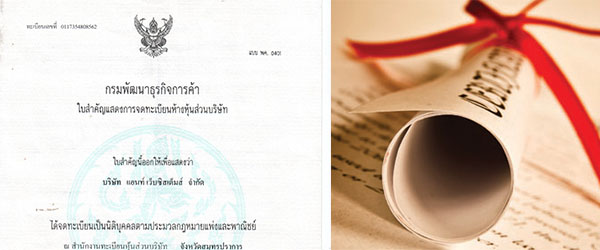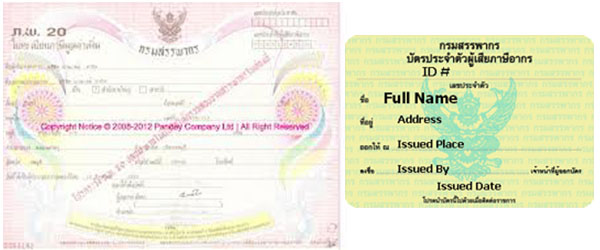Thailand’s economy is driven by foreign investment. As a rapidly-developing nation in Asia, Thailand offers an array of opportunities for foreign businessmen to conduct business in the country in accordance with Thai laws on foreign investment. A common option taken by foreign investors is registering a Thai limited company instead of operating as an offshore company.
A Thai Limited Company is the most utilized type of business organization especially by foreigners who want to conduct business in Thailand. This type of business organization requires ownership by a minimum of three shareholders and managed by at least one director. Under Thai law, a Thai Limited Company is legally a stand-alone company.
For this type of business entity, 51 percent of the company’s shares must be held by Thai citizens. Hence, a foreigner can only own a maximum of 49 percent. Despite this limitation, a foreigner can still maintain a controlling interest in the company by issuing two separate classes of shares: ordinary and preferred. What this means is that shareholders with ordinary shares have more voting rights in the company. And shareholders can choose at least one director who is the only person authorized to sign anything on behalf of the company.
To register a Thai Limited company, a financial requirement of at least Baht Two Million of capital needs to be satisfied and complied with to be eligible for a work permit. If a company is established only to hold property, only Baht One Million is required.
To start the registration process of the Thai Limited Company, one of the promoters or shareholders has to reserve the name of the new company with the Ministry of Commerce. Once the name is approved which takes about 2 days, registration of the new company must effected within 30 days.
Once the reserved name is approved, all shareholders must sign a Memorandum of Association or MOA providing the names and personal details for all of the company’s shareholders, the company’s address, registered capital and intended scope of business activities. The MOA with all relevant registration documents will be submitted to the Ministry of Commerce. When all the shares are reserved, the shareholders must hold a meeting called the statutory meeting. Those shares have to be paid up at least 25% of the shares’ value. The Ministry of Commerce will then issue the company affidavit, certification, list of shareholders and company Articles of Association.
All documents pertinent to the registration of the company’s Tax ID Card and VAT certificate must be submitted to the Central Filing Office of the Revenue Department. Upon completion of the registration requirements, the company will open a corporate bank account in Thailand. For foreign signatories, the bank will require submission of a valid work permit prior to the account opening.
In all of these processes, it will be wise for the foreign investor to engage a law or accounting firm that will help in making sure that the registration requirements are complied with and that they are all submitted to the proper government department to make sure of the legality of such undertaking.
It is important that the law firm or the accounting firm do have Thai or even foreign lawyers or accountants who are affluent in both English and Thai language because every binding contract must have Thai translation. This is to ensure that the business entity have full understanding of the Thai laws. This is the standard operating procedure in Thailand that every business should know from the very beginning. Click here for law firm in Phuket that has English Speaking lawyers.







